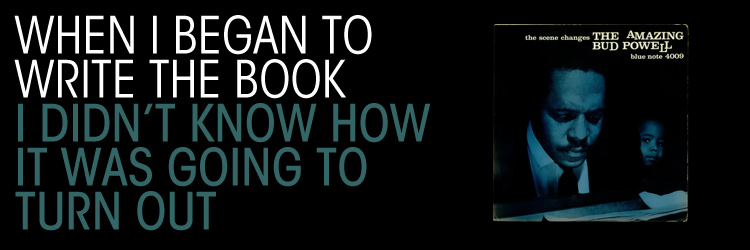From the hallowed halls of Columbia University to the thoughtful minds of the Universities of California, Dr. Guthrie P. Ramsey’s latest book, The Amazing Bud Powell: Black Genius, Jazz History, and the Challenge of Bebop, generates impassioned discussion. Recently, Michael Schapira, of the literary site Full Stop, took the time to talk with our editor in chief about the life and talent of Bud Powell. Below is an excerpt from that conversation. You can read the interview in its entirety here. ~ Managing Editor, Musiqology
MS: I have to admit that I didn’t leave the book with a great sense of Bud Powell the man, but this seemed to be an unavoidable challenge. You cite many descriptions of him as “introverted,” verging on silent at times. There are long stretches when he is out of the public eye because either he is hospitalized, in a psychiatric institution, or homebound and in the care of others because of sickness or drug and alcohol abuse. Did you confront a dearth of material when focusing on the biographical aspect of the book — and was this not too much a concern because the book is also a work of cultural history, music criticism, and even literary and aesthetic criticism in your treatments of “black genius” and the relationship of these musicians to other avant-guard and modernist movements?
GR: I think it’s two things that made the book turn out like it did. First, I think it takes a lot of stamina and sustained interest in a figure to write a biography. You have to have a set of questions that you are pursuing. Peter Pullman has published a Bud Powell biography and he’d been working on it for years. He wanted to write a biography, so he went down that path when he started the project. When I began to write the book I didn’t know how it was going to turn out. In retrospect, being a professor and always teaching, I wrote it as someone who is often in front of people, getting them to hear, getting them to understand that learning history is important to hearing, to understand that the masterpieces that we study in jazz history have context and have histories. So in order to understand the full story you have to move in lots of different directions, not just through biography.
Read the full interview at Full Stop here.


 Share On Facebook
Share On Facebook Tweet It
Tweet It




